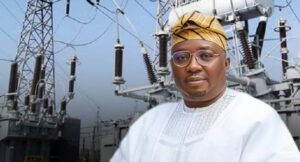Nigeria’s Minister of Power, Adebayo Adelabu, has announced the country’s goal to generate 6 gigawatts (GW) of electricity by the end of 2024, marking a significant increase from the current generation of 5,155 megawatts (MW). Speaking at a Board retreat for the Nigeria Electricity Liability Management Company (NELMCO) in Lagos on Thursday, Adelabu outlined the government’s short-term and long-term energy targets.

“We aim to reach a new milestone in power delivery with a target of 6 gigawatts by December 2024,” Adelabu stated. He further explained that this short-term goal is part of a broader vision, known as Vision 30-30-30, which aims to generate 30 gigawatts by 2030. Of this, 30% will come from renewable energy sources, ensuring universal access to electricity across the country.
Adelabu emphasized the importance of corporate governance within the power sector to achieve these ambitious goals. He urged government officials and industry members to adhere to high standards of transparency, accountability, and integrity. “As we manage the liabilities of the Nigeria Electricity Supply Industry, it is imperative that we uphold the highest standards. Our actions must align with the principles that safeguard public interests, ensuring trust is maintained and strengthened,” he said.
The Minister also addressed the growing trend of Nigerians turning to alternative energy sources, such as diesel and petrol generators, due to the unreliable national grid. He insisted that the national grid remains the most reliable and cost-effective source of electricity. “The average cost of producing captive power is about N350 to N400 per kilowatt-hour for those connected to gas lines. For diesel, it’s about N950, while petrol is about N550,” he noted. Adelabu expressed confidence that with improved stability and trust in the national grid, more consumers and industries will reconnect for cheaper power.
To achieve these goals, the government is using a multi-pronged approach, focusing on several key areas to improve the power supply. This includes better governance, infrastructure upgrades, and integrating renewable energy sources into the grid. Adelabu highlighted the need for the power sector to embrace environmental, social, and governance (ESG) standards, which are increasingly becoming a global requirement for sustainable operations.
“In today’s world, ESG considerations are no longer optional; they are integral to every corporate operation,” Adelabu said. He stressed that NELMCO’s role goes beyond managing financial liabilities and includes being responsible stewards of social and environmental responsibilities. “We must incorporate sustainable practices into our strategies, ensuring that our actions contribute to Nigeria’s broader goals of achieving the nation’s climate ambitions and fostering social equity,” he added.
Adelabu concluded by saying that a commitment to ESG standards will not only enhance the power sector’s reputation but also ensure long-term value creation for all Nigerians. This holistic approach is expected to play a crucial role in Nigeria’s journey towards achieving a stable and sustainable power supply for the nation.




